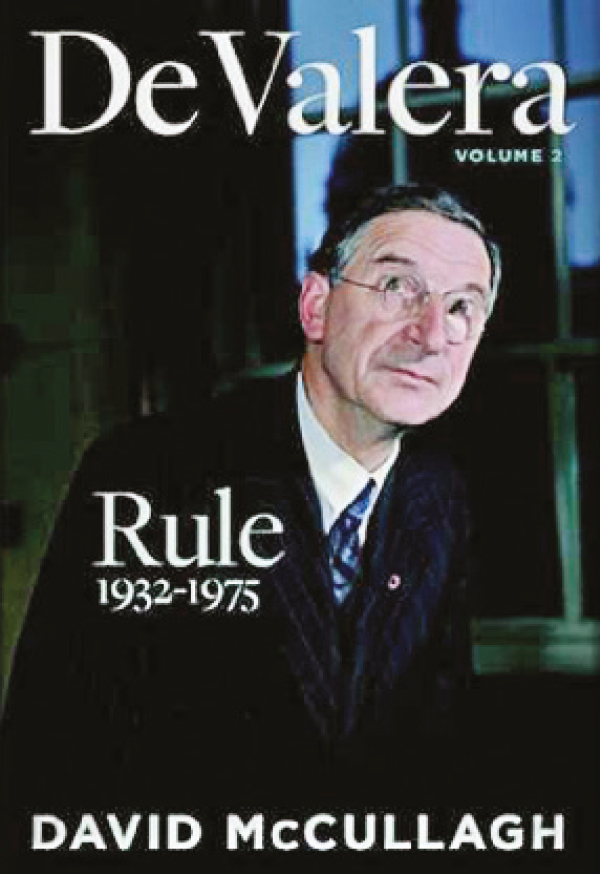
By David Prendeville
This exhaustively-researched book covers Éamon De Valera’s life from 1932 to 1975. It follows on from author David McCullagh’s first volume, which covered De Valera from 1882 to 1932. The book is rich in detail and paints a vivid picture, not just of De Valera’s time in power, but also of a tumultuous and much-changing time in Irish history.
The book is made up of twenty chapters, covering such events as De Valera’s return to power with Fianna Fáil in 1932, the drawing up of the constitution in 1937, his election to the presidency in 1959, to finally, his death and legacy.
McCullagh’s writing fuses academic rigorousness with simplicity and accessibility. He sets out to paint a vivid picture of De Valera as a human and a politician, without ever debunking how enigmatic and divisive a figure he was and, to this day, still is.
You can sense admiration coming from McCullagh in his detailing of some of De Valera’s achievements in achieving an Irish republic. How he dismantled the Treaty, got the return of the Treaty ports and maintained neutrality during World War 2.
However, McCullagh is also well aware of the flaws and contradictions De Valera exhibited. He, in a sure-handed and balanced way, covers De Valera’s staunch Catholicism and the effect this had on Ireland.
De Valera’s inherent misogyny is covered in how he removed an article from the Irish Free State constitution that had guaranteed political right “without distinction of sex.” The long-lasting effects of De Valera’s attitude towards women can still be seen today. A referendum on removing, from the constitution, Article 41.2, which references a woman’s place in the home, was recently postponed.
It is also interesting to note just how close the referendum to pass De Valera’s constitution was – 56.5 per cent in favour to 43.5 against, with the margin of victory a meagre 158,160.
De Valera’s complex relationship with the North is another contentious point of interest. All these add up to illustrate his dangerous conservatism, his lack of comprehensive popularity and his capacity for self-service.
In the closing chapter of the book McCullagh quotes John A. Murphy saying that De Valera is: “the most significant figure in the political history of modern Ireland.” McCullagh reiterates that this statement by Murphy is “not a value judgement: it is a simple statement of fact.” McCullagh cites tactical nous, pragmatism and the underrated quality of luck as to De Valera’s longevity and success.
There is no question how monumental a figure De Valera has been in Irish history, for good or for ill. It is fitting, then, that this book tackles the subject with such enormity of scale and detail. To contrast how much progress Ireland has made socially, since much of the dark days covered here, also makes for a hopeful and positive picture.
The book is littered with intelligent insights, as well as a storyteller’s touch.



